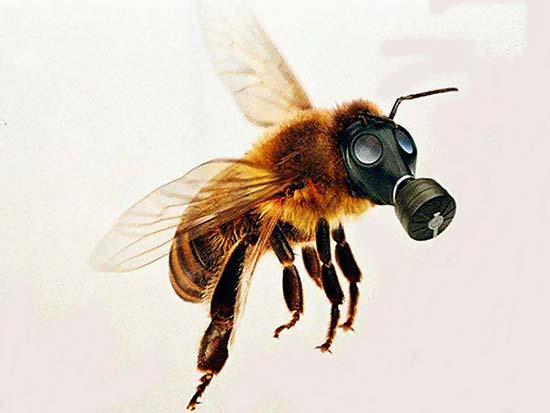Neil Young, Pope Francis and German 100,000 Beekeepers Take a Stand Against Toxic Agriculture

- By Dr. Joseph Mercola - July 21, 2015
What do Neil Young, Pope Francis, and German beekeepers have in common? They are all speaking out against genetically engineered crops (GMO) and the excessive use of toxic pesticides.
Meanwhile, the chemical technology industry is feverishly trying to revamp its image by renaming itself and putting out new spins on words, to disguise what they’re really all about.
The sad fact is, the chemical industry has to a large degree taken over the food industry, not to mention hijacked the federal regulatory process. In essence, most of the population is being fed by poison experts. The Grocery Manufacturers Association (GMA), which has (by its own admission) been instrumental in keeping Americans in the dark about what’s in our food, also admits it has played an integral role in shaping the draconian “DARK Act” — ‘Denying Americans the Right to Know’ - which delivers Monsanto everything they’ve ever wanted on a silver platter while obliterating the democratic process.
Surprising Many, Pope Francis Calls for Radical Transformations to Confront Environmental Degradation
On June 18, 2015, Pope Francis’ 184-page long Encyclical letter1,2 was published, in which he calls for the transformation of lifestyles, politics, agriculture, economics, and business in general to tackle environmental degradation. “The violence present in our hearts is also reflected in the symptoms of sickness evident in the soil, in the water, in the air and in all forms of life,”he says. And, while praising scientific advancements, he criticizes the use of novel technologies without adequate forethought, noting that: “our immense technological development has not been accompanied by a development in human responsibility, values and conscience.”
To many people’s surprise, Pope Francis appears to have a fairly comprehensive grasp of the subject of genetically engineered food and its many inherent hazards, both to the environment and human health.
Far from coming from a strictly religious perspective, he comprehensively addresses the issue from the point of ecological and economical balance, noting:3
“The expansion of these [genetically engineered] crops has the effect of destroying the complex network of ecosystems, diminishing the diversity of production and affecting regional economies, now and in the future.
In various countries, we see an expansion of oligopolies for the production of cereals and other products needed for their cultivation. This dependency would be aggravated were the production of infertile seeds to be considered; the effect would be to force farmers to purchase them from larger producers.
Certainly, these issues require constant attention and a concern for their ethical implications. A broad, responsible scientific and social debate needs to take place, one capable of considering all the available information and of calling things by their name.
Discussions are needed in which all those directly or indirectly affected (farmers, consumers, civil authorities, scientists, seed producers, people living near fumigated fields, and others) can make known their problems and concerns, and have access to adequate and reliable information in order to make decisions for the common good, present and future.
This is a complex environmental issue; it calls for a comprehensive approach which would require, at the very least, greater efforts to finance various lines of independent, interdisciplinary research capable of shedding new light on the problem.”


